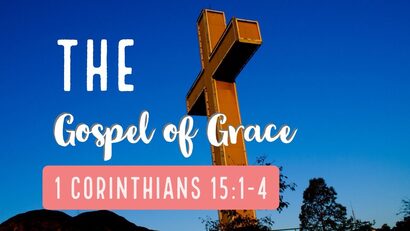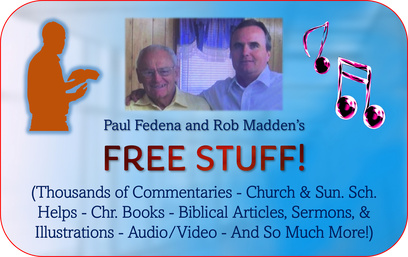SOME METHODS OF BIBLE STUDY
FOR BEGINNERS
1. Synthetic. Bible study by books. Take each book of the Bible and read it several times through so as to get the scope of the book. Find the key expressions, key verses, key chapter, its practical teaching, its presentation of Christ, its dispensational setting.
2. Parallel. Bible study by references. Using a good reference Bible, look up the marginal references. Better still, get "Treasury of Scripture Knowledge," a book which treats every verse in the Bible by parallel references. There is no better commentary on the Bible than the Bible itself.
3. Topical. Bible study by topics. A topical text book will be of help. This groups the important Scripture passages topically. "What the Bible Teaches" (Torrey) is a larger and more thorough work of this nature. For instance, take the subject of "Justification" and carefully read every passage containing this word.
4. Microscopic. Bible study by concordance. A Cruden's Concordance is good, but the thorough student will want "Strong's Exhaustive Concordance." Take great words of Scripture and look up their use in different passages. This will suggest Bible outlines pf a very practical nature. For instance, find the "fear nots" of the Bible, noting the different things we are told we are not to fear, etc.
5. Explanation. Bible study by commentary. Reading a chapter in your Bible, read the comments of some good Bible authority with it. Matthew Henry's Commentary is practical for the ordinary student.
6. Chapter Summary. Bible study for the purpose of analyzing each chapter. Special note books have been prepared for this kind of work. One by the author of this booklet, is called, "Through My Bible, Chapter by Chapter." Blank space is provided for the student to note the principal characters, important events, promises, memory verses, spiritual lesson, how Christ is seen, etc. This is a very helpful method.
2. Parallel. Bible study by references. Using a good reference Bible, look up the marginal references. Better still, get "Treasury of Scripture Knowledge," a book which treats every verse in the Bible by parallel references. There is no better commentary on the Bible than the Bible itself.
3. Topical. Bible study by topics. A topical text book will be of help. This groups the important Scripture passages topically. "What the Bible Teaches" (Torrey) is a larger and more thorough work of this nature. For instance, take the subject of "Justification" and carefully read every passage containing this word.
4. Microscopic. Bible study by concordance. A Cruden's Concordance is good, but the thorough student will want "Strong's Exhaustive Concordance." Take great words of Scripture and look up their use in different passages. This will suggest Bible outlines pf a very practical nature. For instance, find the "fear nots" of the Bible, noting the different things we are told we are not to fear, etc.
5. Explanation. Bible study by commentary. Reading a chapter in your Bible, read the comments of some good Bible authority with it. Matthew Henry's Commentary is practical for the ordinary student.
6. Chapter Summary. Bible study for the purpose of analyzing each chapter. Special note books have been prepared for this kind of work. One by the author of this booklet, is called, "Through My Bible, Chapter by Chapter." Blank space is provided for the student to note the principal characters, important events, promises, memory verses, spiritual lesson, how Christ is seen, etc. This is a very helpful method.




